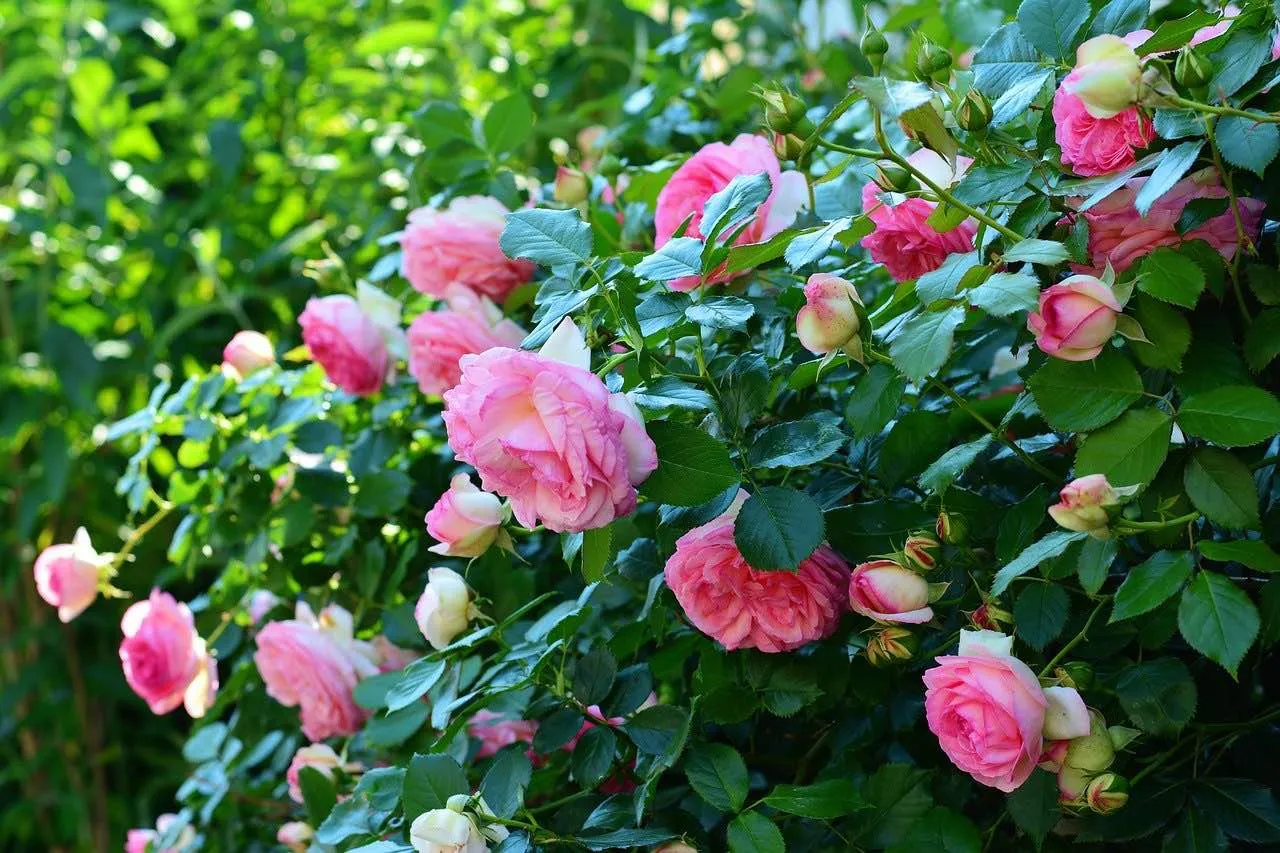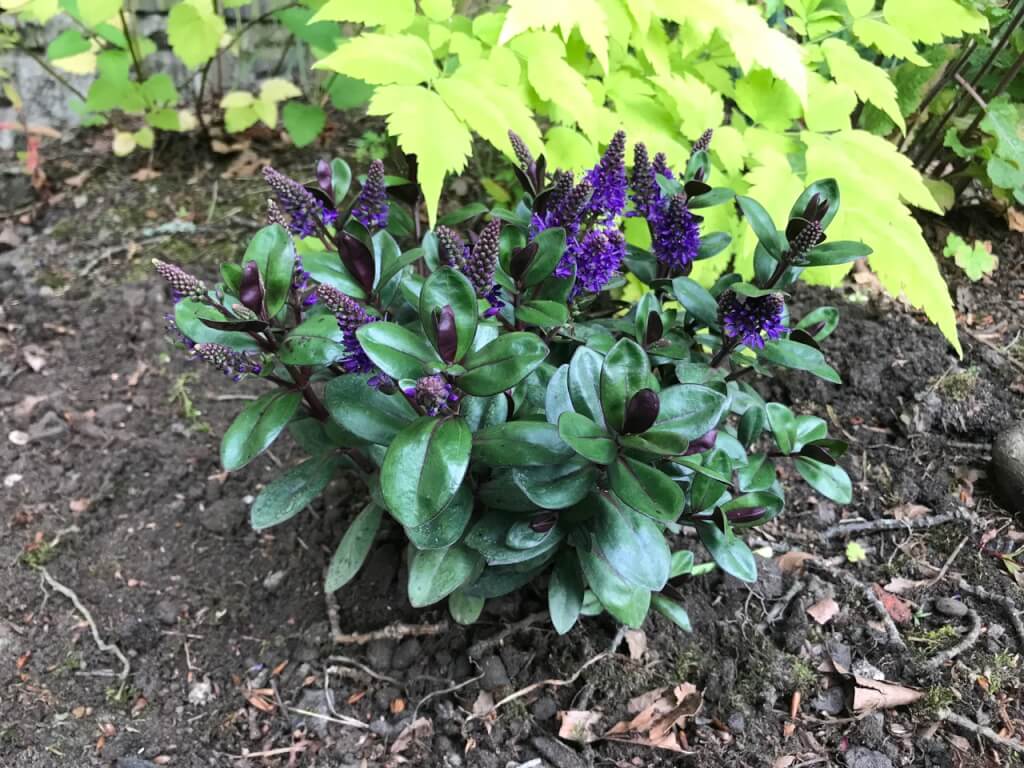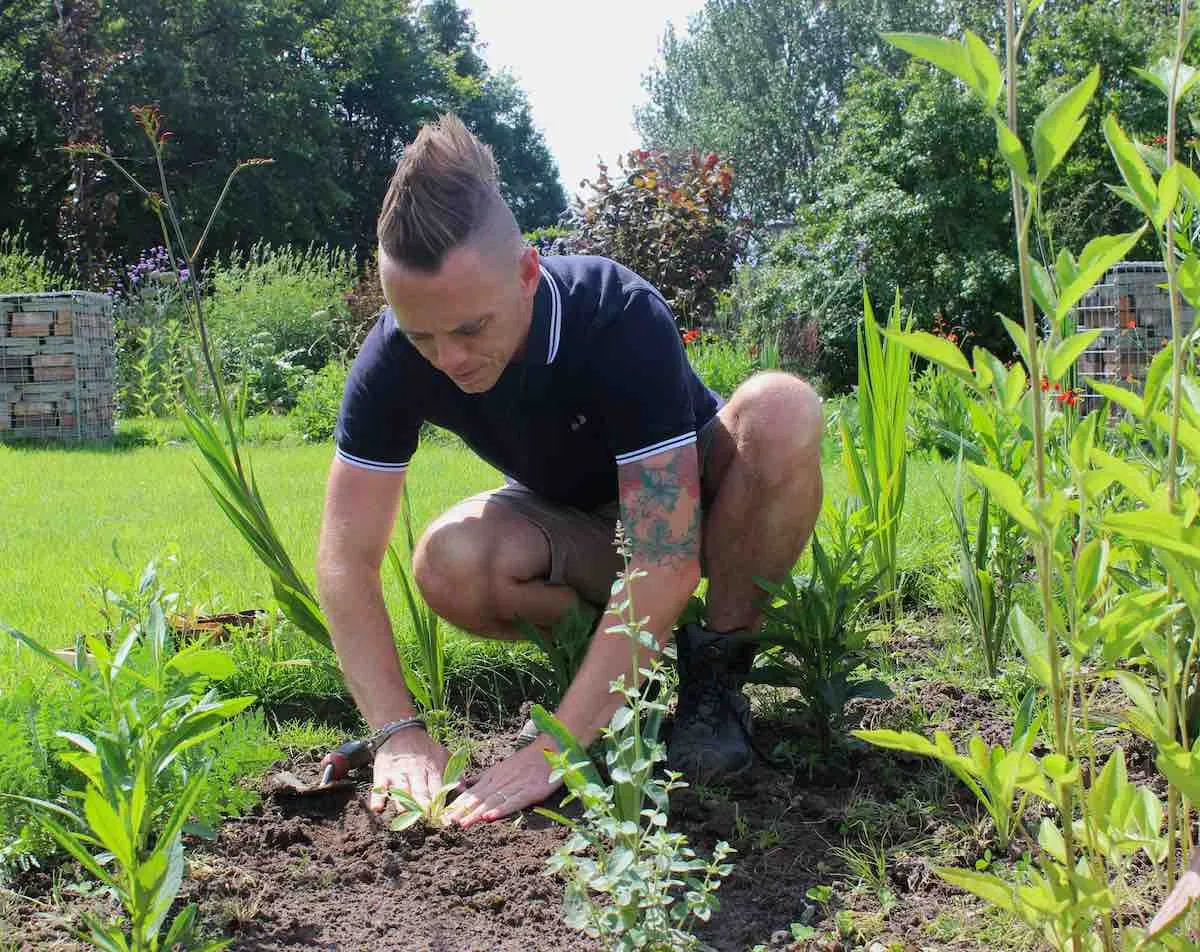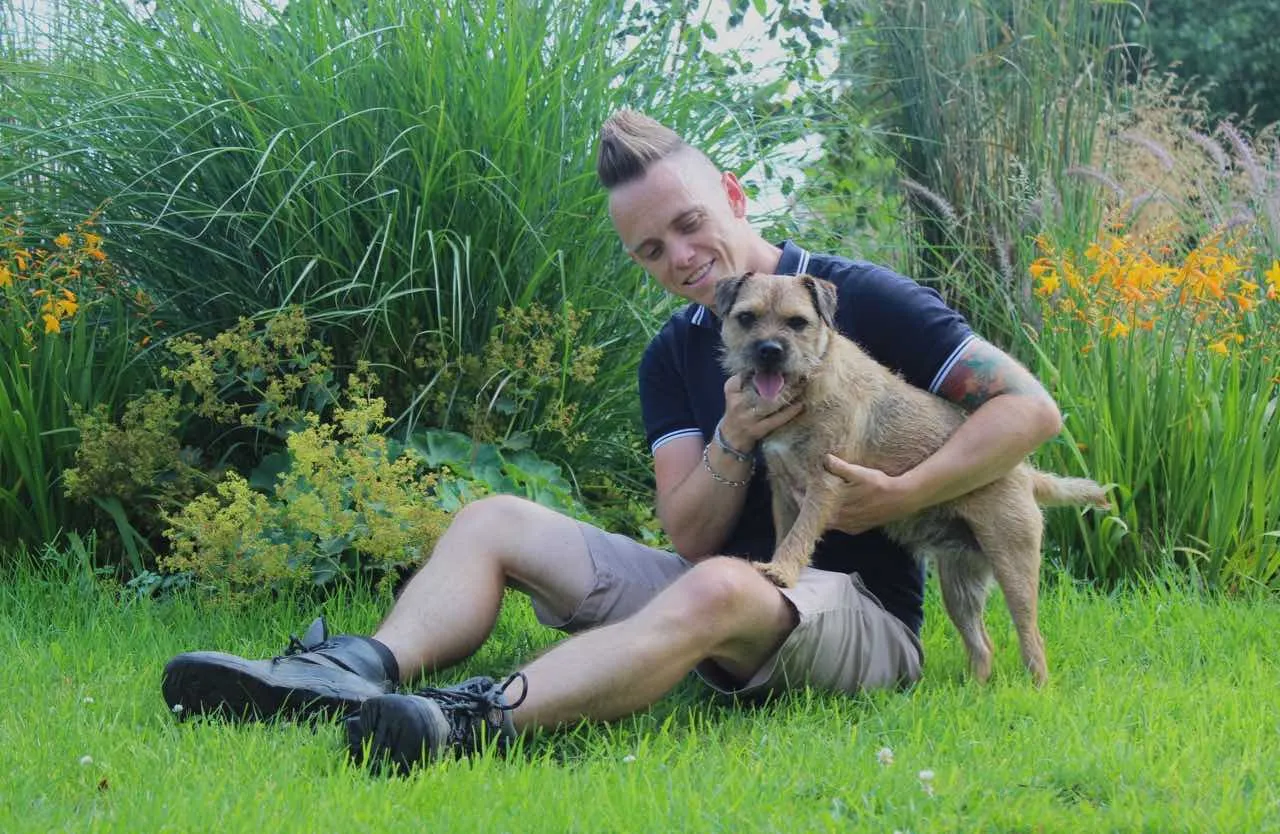Hi @theoriginalbookworm
Thanks for your question about black pots on your Hebe and Roses.
You're correct that it's not weed killer - though I would urge you to have a look at more organic ways to kill weeds such as manually removing them as per my guide here.
The black spots on both your Hebe and Roses is a fungus called 'black spot'.
It favours wet conditions and is easily spread between plants, especially by rainfall or the leaves allowed to fall, spreading this virulent fungus. It causes deformities in the leaves, weakens the plant and causes slower growth. It doesn't kill plants but does slow them down and make them look unsightly.
What is Rose Black Spot?
Rose black spot is a common fungal disease that affects rose plants, particularly those grown in humid or damp conditions. It is caused by the fungus Diplocarpon rosae, which infects the leaves of roses and causes characteristic black spots to develop on the foliage. The spots are usually circular, and they may have a yellow halo around them. Over time, the infected leaves may turn yellow, wither, and fall off the plant, which can weaken the rose and reduce its overall health and vigor.

Rose black spot can be a serious problem for rose growers, as it can defoliate the plant and weaken its ability to produce flowers. It spreads through water splashing on the leaves, and the spores of the fungus can overwinter in fallen leaves or on infected canes, leading to recurrent infections in the following growing season.
To manage rose black spot, it's important to practice good cultural practices, such as planting roses in well-drained soil, providing adequate air circulation around the plants, and avoiding overhead watering.
Removing and destroying infected leaves and canes can also help reduce the spread of the disease.
Fungicides specifically formulated for rose black spot can be used as part of an integrated pest management approach, but it's important to follow the instructions on the label and use them judiciously to avoid the development of fungicide resistance. They can also impact wildlife.
Regular monitoring and prompt action at the first sign of infection can be effective in managing this common rose disease.
Hebe Black Spot Explained:
The Hebe black spot fungus is known as Septoria spp. As it weakens the Hebe it leaves it open to other attacks such as mildew or other damp weather plant diseases. It's similar to rose Black spot. See an example of a healthy black spot free Hebe below. No yellowing or spots on the leaves when compared to yours as an example.

The best way to treat it is to remove all the affected leaves of the Hebe and dispose of them. Don't compost them.
Chemical treatments are available, but I'm always a bit loathed to start introducing and depending on them as they often have other impacts on wildlife. I would try plant hygiene first such as removing the leaves and giving all affected plants a good natural liquid feed like comfrey tea. Clear up any fallen leaves and mulch with peat-free compost around the base of the plants too.
I hope that helps!
Lee
Hi @theoriginalbookworm
Thanks for your question about black pots on your Hebe and Roses.
You're correct that it's not weed killer - though I would urge you to have a look at more organic ways to kill weeds such as manually removing them as per my guide here.
The black spots on both your Hebe and Roses is a fungus called 'black spot'.
It favours wet conditions and is easily spread between plants, especially by rainfall or the leaves allowed to fall, spreading this virulent fungus. It causes deformities in the leaves, weakens the plant and causes slower growth. It doesn't kill plants but does slow them down and make them look unsightly.
What is Rose Black Spot?
Rose black spot is a common fungal disease that affects rose plants, particularly those grown in humid or damp conditions. It is caused by the fungus Diplocarpon rosae, which infects the leaves of roses and causes characteristic black spots to develop on the foliage. The spots are usually circular, and they may have a yellow halo around them. Over time, the infected leaves may turn yellow, wither, and fall off the plant, which can weaken the rose and reduce its overall health and vigor.

Rose black spot can be a serious problem for rose growers, as it can defoliate the plant and weaken its ability to produce flowers. It spreads through water splashing on the leaves, and the spores of the fungus can overwinter in fallen leaves or on infected canes, leading to recurrent infections in the following growing season.
To manage rose black spot, it's important to practice good cultural practices, such as planting roses in well-drained soil, providing adequate air circulation around the plants, and avoiding overhead watering.
Removing and destroying infected leaves and canes can also help reduce the spread of the disease.
Fungicides specifically formulated for rose black spot can be used as part of an integrated pest management approach, but it's important to follow the instructions on the label and use them judiciously to avoid the development of fungicide resistance. They can also impact wildlife.
Regular monitoring and prompt action at the first sign of infection can be effective in managing this common rose disease.
Hebe Black Spot Explained:
The Hebe black spot fungus is known as Septoria spp. As it weakens the Hebe it leaves it open to other attacks such as mildew or other damp weather plant diseases. It's similar to rose Black spot. See an example of a healthy black spot free Hebe below. No yellowing or spots on the leaves when compared to yours as an example.

The best way to treat it is to remove all the affected leaves of the Hebe and dispose of them. Don't compost them.
Chemical treatments are available, but I'm always a bit loathed to start introducing and depending on them as they often have other impacts on wildlife. I would try plant hygiene first such as removing the leaves and giving all affected plants a good natural liquid feed like comfrey tea. Clear up any fallen leaves and mulch with peat-free compost around the base of the plants too.
I hope that helps!
Lee
 Lee Burkhill: Award Winning Designer & BBC 1's Garden Rescue Presenters Official Blog
Lee Burkhill: Award Winning Designer & BBC 1's Garden Rescue Presenters Official Blog



